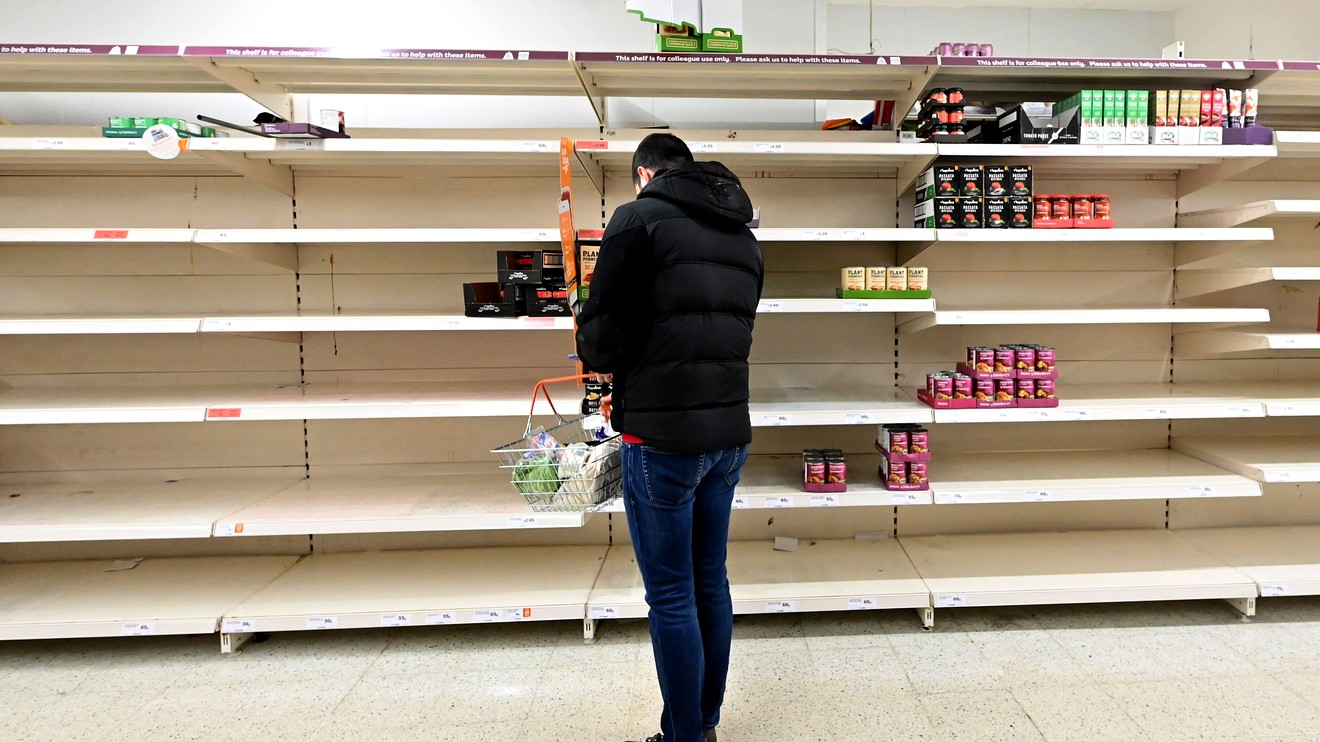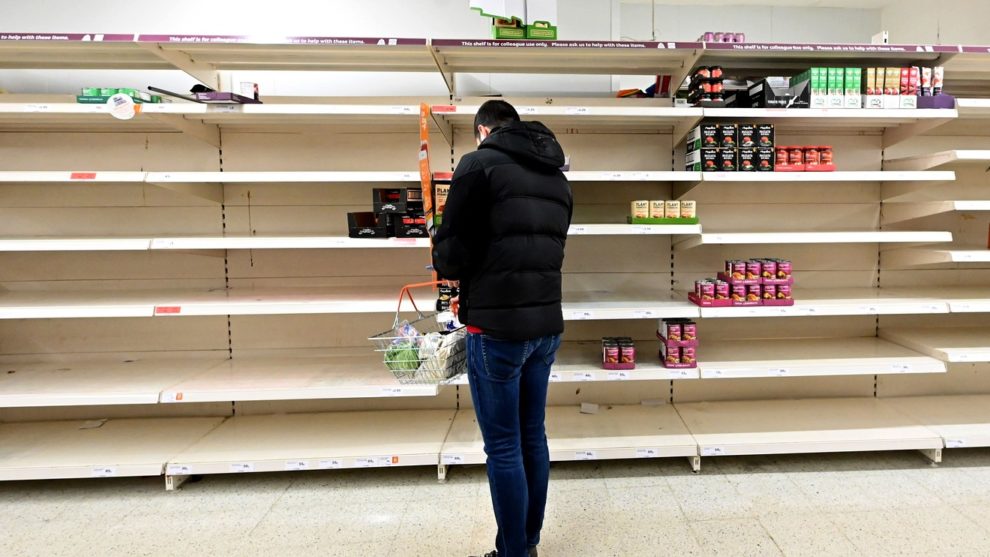
As during the Second World War, neighbors in Britain are coming together to help neighbors amid a battle against a lethal enemy.
Thousands of citizen-led groups have sprung up across Britain as neighbors club together to offer support to people in need during the coronavirus pandemic.
Through Wednesday, more than 1,500 groups had been set up online, with volunteers coordinating via Facebook FB, +4.20% and WhatsApp, and the numbers were mushrooming by the hour as people retreat behind their doors to stem the spread stem of the virus.
The groups, which are being coordinated nationally by COVID-19 Mutual Aid U.K., offer help to people in self-isolation with everything from picking up groceries and prescriptions to dog walking or even a friendly chat on Skype or a mobile phone to boost morale.
Kevin Smith, one of the coordinators of the national network, said the idea for the platform only came about last Friday after a group of people in the borough of Lewisham in the southeast of the capital with a background in community organizing got together to discuss the impacts of the virus on neighborhoods and their implications.
“This is such a huge crisis that we are facing, and it is really critical that anyone who is self-isolating and doesn’t have access to community support does it properly. Individual well-being is fundamentally dependent on collective well-being,” Smith said in a telephone interview.
Smith said volunteers were distributing fliers to raise awareness of the support groups, which provided contact numbers for people available to help. “We are three-quarters of the way through leafleting everyone in the ward I am helping support in the borough of Islington,” Smith said.
The rapid proliferation of community groups comes as British Prime Minister Boris Johnson has shifted his approach and ramped up measures to battle the virus, urging residents to avoid unnecessary contact with others and telling people in the most at-risk groups, including those over the age of 70, to stay home for three months.
And: U.K. government forecasts up to one-fifth of workforce to be absent as coronavirus peaks
Government data showed that, as of 9 a.m. on March 18, 56,221 people had been tested in the U.K., with 53,595 negative and 2,626 confirmed COVID-19-positive. Of those patients in the U.K. who tested positive, 103 have died.
“Regardless of any lockdown, the need for these community groups will ramp up in coming months,” Smith said. “And they cut across all demographics.”
Stories being shared among groups include one of a mother with an autistic child who appealed for extra toys, which the mutual-aid group washed and sterilized before delivering. Others have been asking for thermometers, which are now in short supply in pharmacies as people have rushed to stock their cupboards.
Hope Winter-Hall, a disabled resident of Islington with a social care package, is self-isolating along with her 92-year-old mother. “We already know that social services and the NHS were overwhelmed before this virus hit. I am very well-prepared for months of isolation, but I will be needing help before it is over. Finding the Islington Mutual Aid group lifted our spirits and changed our view of the future,” she said.
Lucy Caldicott has been offering community support in Stockwell. As one of the elected councilors in the southwest London district, she has the advantage of already knowing much of the community, and has spent the week speaking to local doctors, pharmacies, schools and residents associations in her ward.
“It’s all about joining the dots. We are going to be in this for a long time, so it’s good to get the structures in place now,” Caldicott said.
“The first stage of activity has been letting people know we exist by distributing leaflets. The next step will be to come up with a safe and streamlined system so we can help the more vulnerable and dependent,” she added.
She is already fielding requests from people asking for help getting bits of shopping or cat litter, but this is likely to shift to more urgent needs such as delivering medicines if staff at the local pharmacy are off sick.
Being plugged into a community network also means neighbors can give each other a couple of acetaminophen tablets if there’s none in stock.
The Royal Borough of Kensington & Chelsea, one of the areas worst hit by the virus, sent out an urgent plea to registered volunteers on Thursday asking them to support distribution centers providing vital supplies to elderly, isolated residents. Roles include sorting donated items and delivering supplies.
Food banks have been experiencing a dire shortage of basic items as supermarkets run low on supplies amid panic buying among consumers.
In a WhatsApp message to local residents, Catherine Blackler, head teacher at Avondale Park Primary School in Kensington & Chelsea, said the school was “aware and concerned” that many families in the community wouldn’t be able to access the support that they usually have, including food banks, if and when the school closed.
“We have been informed that local food banks are running out of food due to the shortages in the supermarkets,” read the message, “so we are creating our own. Please consider donating.”
The British government’s appeal to the nation’s Blitz spirit, which helped it survive World War II, looks to have worked, and Childcott is hoping it will last once the crisis passes.
“We are entering a dark time now, but one ray of hope is that, when all of this is over, neighbors will know each other and communities will emerge stronger,” she said.
div > iframe { width: 100% !important; min-width: 300px; max-width: 800px; } ]]>









